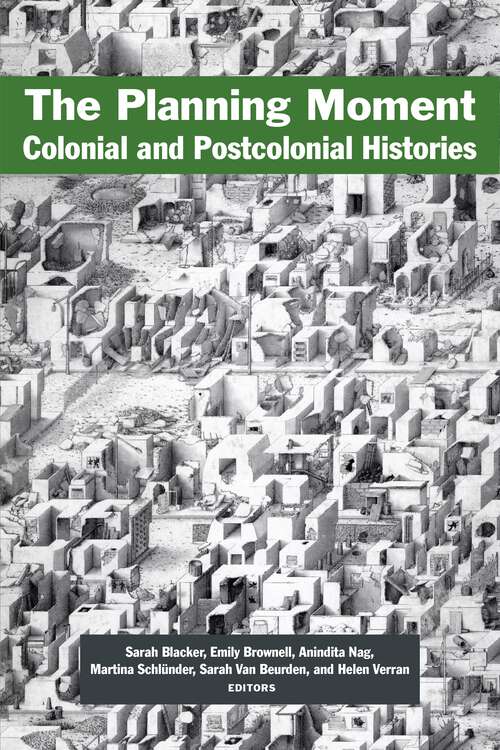
The Planning Moment: Colonial and Postcolonial Histories
History, Politics and government, Science and technology
Synthetic audio, Automated braille
Summary
Empires and their aftermaths were massive planning institutions; in the past two hundred years, the natural and social sciences emerged—at least in part—as modes of knowledge production for imperial planning. Yet these connections are frequently under-emphasized in the history of… science and its corollary fields. The Planning Moment explores the myriad ways plans and planning practices pervade recent global history. The book is built around twenty-seven brief case studies that explore the centrality of planning in colonial and postcolonial environments, relationships, and contexts, through a range of disciplines: the history of science, science and technology studies, colonial and postcolonial studies, urban studies, and the history of knowledge.If colonialism made certain landscapes, populations, and institutions legible while obscuring others, The Planning Moment reveals the frequently disruptive and violent processes of erasure in imperial planning by examining how “common sense” was produced and how the intransigence of planning persists long after decolonization. In recognizing the resistance and subversion that often met colonial plans, the book makes visible a range of strategies and techniques by which planning was modified and reappropriated, and by which decolonial futures might be imagined.Contributors: Itty Abraham, Benjamin Allen, Sarah Blacker, Emily Brownell, Lino Camprubí, John DiMoia, Mona Fawaz, Lilly Irani, Chihyung Jeon, Robert Kett, Monika Kirloskar-Steinbach, Karen McAllister, Laura Mitchell, Gregg Mitman, Aaron Moore (†), Nada Moumtaz, Tahani Nadim, Anindita Nag, Raúl Necochea López, Tamar Novick, Benjamin Peters, Juno Salazar Parreñas, Martina Schlünder, Sarah Van Beurden, Helen Verran, Ana Carolina Vimieiro Gomes, Alexandra Widmer, and Alden Young